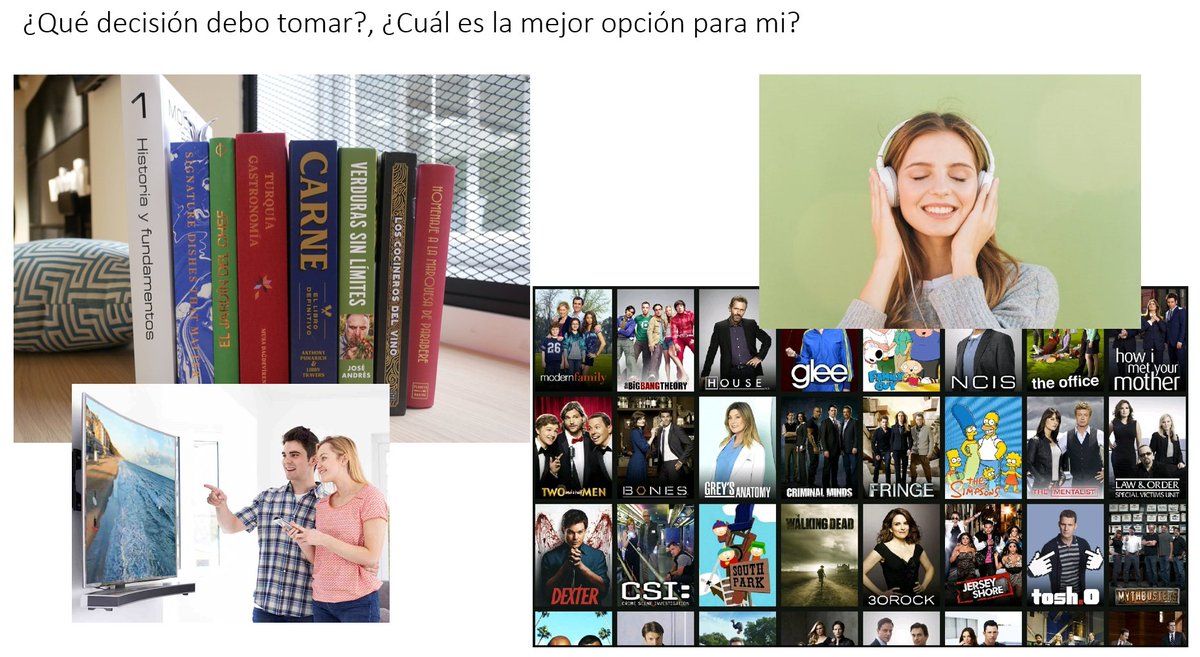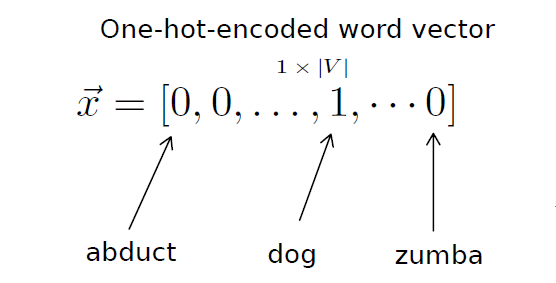
¿Has escuchado hablar sobre los sistemas de recomendación basados en argumentos?
¿Te gustan las recomendaciones explicadas y argumentadas?
🚨SPOILER ALERT🚨: mi investigación es al respecto.
@RedDivulga @CrueUniversidad @UAM_Madrid @UCCUAM @EDoctorado_UAM
Abro #HiloTesis 👇
¿Te gustan las recomendaciones explicadas y argumentadas?
🚨SPOILER ALERT🚨: mi investigación es al respecto.
@RedDivulga @CrueUniversidad @UAM_Madrid @UCCUAM @EDoctorado_UAM
Abro #HiloTesis 👇

En mi tesis doctoral investigo sobre sistemas de recomendación basados en argumentos, específicamente, sobre la generación y explicación de recomendaciones personalizadas e interactivas a partir de argumentos extraídos de contenido textual en español.
2/20
2/20
La hipótesis principal es:
"La explotación de la información argumentativa puede suponer importantes novedades y mejoras en la experiencia del usuario con los sistemas de recomendación".
¿Suena raro? A continuación te doy algo de contexto y detallo mi trabajo en curso.
3/20
"La explotación de la información argumentativa puede suponer importantes novedades y mejoras en la experiencia del usuario con los sistemas de recomendación".
¿Suena raro? A continuación te doy algo de contexto y detallo mi trabajo en curso.
3/20
Hoy en día, todo el mundo está expuesto a ingentes cantidades de información online. En este contexto, nos enfrentamos a multitud de situaciones cotidianas en las que tomar decisiones:
▪️ ¿Qué televisor comprar?
▪️ ¿Qué nuevas canciones escuchar?
▪️ ¿Qué libro regalar?
4/20
▪️ ¿Qué televisor comprar?
▪️ ¿Qué nuevas canciones escuchar?
▪️ ¿Qué libro regalar?
4/20

En estas situaciones, las tareas de búsqueda y filtrado de contenidos se hacen tediosas y complicadas.
Ahí es cuando entran al rescate los sistemas de recomendación.
Pero, ¿Qué es un sistema de recomendación?
5/20
Ahí es cuando entran al rescate los sistemas de recomendación.
Pero, ¿Qué es un sistema de recomendación?
5/20
Los sistemas de recomendación (SR) son agentes informáticos basados en Inteligencia Artificial que nos pueden ayudar en tales tareas, filtrando y sugiriendo aquellos ítems/productos que pueden ser de nuestro interés, a partir de grandes colecciones de datos.
6/20
6/20
En nuestro día a día estamos expuestos a SR en infinidad de aplicaciones, tales como Amazon, Spotify o Netflix.
Dependiendo el caso, algunas recomendaciones que recibimos están basadas en la popularidad de los ítems, pero otras tienen que ver con nuestras preferencias.
7/20
Dependiendo el caso, algunas recomendaciones que recibimos están basadas en la popularidad de los ítems, pero otras tienen que ver con nuestras preferencias.
7/20

En general, expresamos nuestras preferencias (gustos e intereses) sobre los ítems de manera “explícita”:
▪️ Ratings / número de estrellas ⭐️
▪️ Pulgar arriba / abajo 👍👎
▪️ Botón de compra 🛒
8/20
▪️ Ratings / número de estrellas ⭐️
▪️ Pulgar arriba / abajo 👍👎
▪️ Botón de compra 🛒
8/20
Y otras veces lo hacemos de forma "implícita":
▪️ Búsquedas que realizamos en un portal web
▪️ Tiempo que empleamos en leer la descripción de un producto
▪️ Número de veces que escuchamos una canción
▪️ Tipos de series que vemos
9/20
▪️ Búsquedas que realizamos en un portal web
▪️ Tiempo que empleamos en leer la descripción de un producto
▪️ Número de veces que escuchamos una canción
▪️ Tipos de series que vemos
9/20
Las anteriores fuentes de información son las que típicamente usan los SR tradicionales:
▪️ Atendiendo a nuestras preferencias (SR basados en contenido)
▪️ Atendiendo a las preferencias de personas afines a nosotros (SR basados en filtrado de colaborativo)
10/20
▪️ Atendiendo a nuestras preferencias (SR basados en contenido)
▪️ Atendiendo a las preferencias de personas afines a nosotros (SR basados en filtrado de colaborativo)
10/20

Sin embargo, existen otras fuentes de preferencias potencialmente útiles para los sistemas de recomendación, que están formadas por contenido textual generado por los usuarios:
▪️ Reseñas de productos
▪️ Blogs de opinión
▪️ Posts en redes sociales
▪️ Propuestas ciudadanas
11/20
▪️ Reseñas de productos
▪️ Blogs de opinión
▪️ Posts en redes sociales
▪️ Propuestas ciudadanas
11/20

De hecho, la comunidad científica ha invertido tiempo y esfuerzo en investigar métodos de extracción automática de preferencias de usuario en textos, en su gran mayoría, intentando identificar valoraciones positivas/negativas sobre aspectos o características de los ítems.
12/20
12/20

Sin embargo, pocos son los estudios que van más allá, intentando encontrar no solo qué opinamos de algo, sino también la causa o motivo de nuestras opiniones, con el objetivo de que las recomendaciones se basen no solo en lo que se dice, sino también en por qué se dice.
13/20
13/20

Esto último es un gran RETO, que consiste en la extracción automática de información argumentativa a partir de contenido textual.
Tarea ya explorada y conceptualizada en el campo de la Minería de Argumentos, subcampo a su vez del Procesamiento del Lenguaje Natural (NLP).
14/20
Tarea ya explorada y conceptualizada en el campo de la Minería de Argumentos, subcampo a su vez del Procesamiento del Lenguaje Natural (NLP).
14/20

Por lo tanto, en esta tesis, proponemos una novedosa aproximación llamada "sistemas de recomendación basados en argumentos", los cuales abordan diversas tareas relacionadas con extracción automática y la explotación de argumentos con fines de recomendación y explicación.
15/20
15/20
De este modo:
1⃣ Investigamos nuevos métodos de recomendación que hacen uso de información argumentativa antes, durante y después del filtrado de ítems.
Lo que nos lleva a una de nuestras primeras contribuciones: clasificación de los SR según el uso de los argumentos.
16/20
1⃣ Investigamos nuevos métodos de recomendación que hacen uso de información argumentativa antes, durante y después del filtrado de ítems.
Lo que nos lleva a una de nuestras primeras contribuciones: clasificación de los SR según el uso de los argumentos.
16/20

2⃣ Investigamos nuevos métodos y enfoques de minería de argumentos para la identificación de conclusiones y premisas, y relaciones entre ellas, con el objetivo de extraer automáticamente argumentos computables, que puedan ser usados por un sistema de recomendación.
17/20
17/20
3⃣ Investigamos la explicación de las recomendaciones dadas a partir de los argumentos usados por el SR, con el fin de aumentar la satisfacción, la confianza, la persuasión y la fidelidad de los usuarios con respecto al sistema.
18/20
18/20

Por último,
4⃣ Investigamos la interacción (por medio de un chatbot) de los usuario con los sistema de recomendación basados en argumentos para ajustar y dar feedback sobre las recomendaciones dadas.
La interacción en el chatbot se realiza por medio de lenguaje natural.
19/20
4⃣ Investigamos la interacción (por medio de un chatbot) de los usuario con los sistema de recomendación basados en argumentos para ajustar y dar feedback sobre las recomendaciones dadas.
La interacción en el chatbot se realiza por medio de lenguaje natural.
19/20

Espero que les haya gustado el #HiloTesis y que haya podido transmitir de qué va mi investigación 😀
Si les interesa conocer más al respecto, puedes visitar nuestro website: github.com/argrecsys
Finalmente, cualquier pregunta o comentario son bienvenidos.
Gracias 👋
20/20
Si les interesa conocer más al respecto, puedes visitar nuestro website: github.com/argrecsys
Finalmente, cualquier pregunta o comentario son bienvenidos.
Gracias 👋
20/20
• • •
Missing some Tweet in this thread? You can try to
force a refresh







